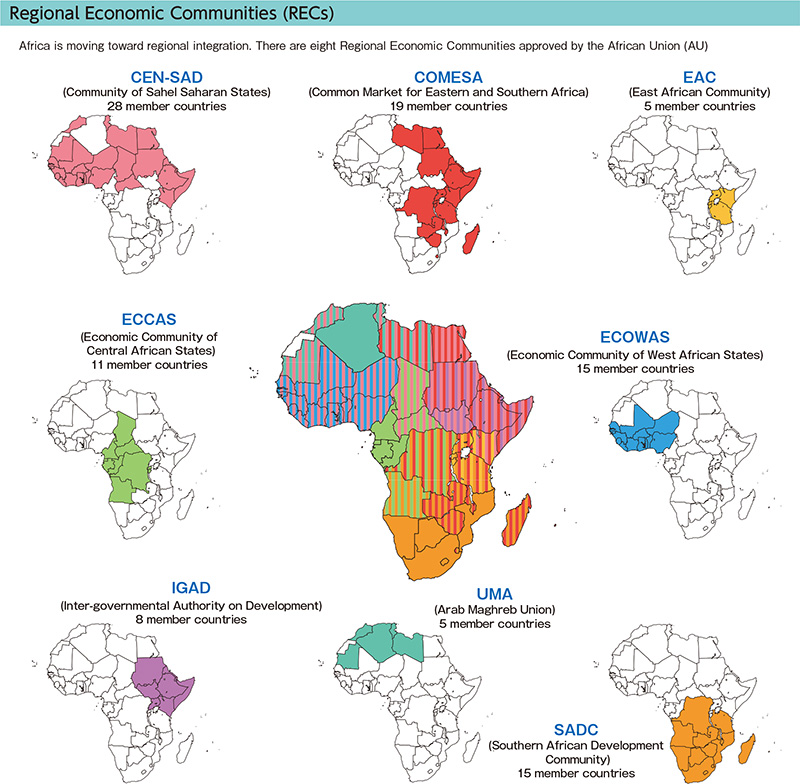Regional Organizations Shaping Africa’s Economic Landscape
The African Continental Free Trade Area (AfCFTA), a trailblazing initiative that spans 55 African countries, is poised to revolutionize the continent’s economic trajectory. At its heart lies the collaboration of diverse regional organizations, each with a unique mandate and expertise. These organizations play a crucial role in driving integration, fostering cooperation, and unlocking the vast opportunities that AfCFTA presents.

Image: www.afdb.org
Economic Community of West African States (ECOWAS)
ECOWAS, a prominent regional bloc in West Africa, boasts 15 member states. Its mission is to promote regional integration and cooperation through economic and political initiatives. ECOWAS’s contributions to AfCFTA are vital, encompassing trade liberalization, infrastructure development, and the harmonization of economic policies.
East African Community (EAC)
Spanning six nations in East Africa, the EAC’s focus lies on strengthening regional cooperation and fostering economic development. With the establishment of a common market and customs union, the EAC has laid a solid foundation for enhanced trade and investment within the region. Its integration efforts under AfCFTA aim to deepen these ties and reap the benefits of economies of scale.
Southern African Development Community (SADC)
SADC, representing 16 countries in Southern Africa, is committed to regional cooperation, integration, and sustainable development. Its extensive agenda includes trade facilitation, infrastructure development, and human capital enhancement. SADC’s contributions to AfCFTA involve harmonizing regulations, promoting investment, and facilitating cross-border trade.

Image: afriwonk.com
Harnessing the Power of Regional Cooperation
The collaboration among these regional organizations within the framework of AfCFTA offers immense benefits, transforming them into a formidable driving force for Africa’s economic empowerment. By pooling their resources and expertise, these organizations can:
- Accelerate Trade: The removal of trade barriers and the establishment of a single market across the continent will lead to increased trade flows, stimulating economic growth and job creation.
- Enhance Competitiveness: By harmonizing regulations and standards, businesses across Africa will have a level playing field, fostering competition and driving innovation.
- Attract Investment: The creation of a larger, unified market with improved infrastructure, reduced trade costs, and increased purchasing power will make Africa a prime destination for foreign investment.
- Foster Collaboration: The framework of AfCFTA encourages dialogue and cooperation among member states, promoting regional solutions to shared challenges.
Navigating the Path Forward
To fully harness the potential of AfCFTA, regional organizations must continue to work together, strengthening partnerships and leveraging their comparative advantages. Bold leadership and commitment at all levels are essential, ensuring that AfCFTA translates into tangible economic benefits for all Africans.
The journey toward a fully integrated and prosperous Africa is underway, and the African Continental Free Trade Area serves as a beacon of hope and opportunity. It is a testament to the continent’s collective resolve to seize its economic destiny and shape a brighter future for generations to come.
African Continental Free Trade Area Regional Organizations Africa
FAQ
Q: What is the African Continental Free Trade Area?
A: The AfCFTA is a comprehensive agreement that establishes a single market for goods and services across all 55 African countries.
Q: How does AfCFTA benefit businesses?
A: By eliminating trade barriers and harmonizing regulations, AfCFTA reduces trade costs, increases market opportunities, and fosters a more competitive business environment.
Q: What role do regional organizations play in AfCFTA?
A: Regional organizations are key drivers of AfCFTA implementation, promoting integration, harmonizing policies, and facilitating cross-border trade.






